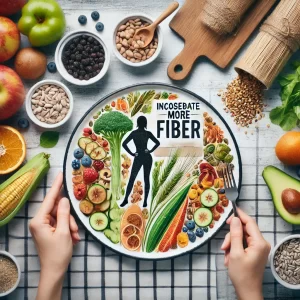The Essential Do’s and Don’ts of the Mediterranean Diet for Weight Loss
Introduction
The Mediterranean Diet is often praised as one of the healthiest and most sustainable ways to eat, especially for weight loss and overall well-being. It’s based on the traditional eating patterns of people living in countries like Greece, Italy, and Spain, where whole foods like fruits, vegetables, whole grains, legumes, and healthy fats like olive oil play a central role. While the Mediterranean Diet is relatively flexible and enjoyable, there are some key do’s and don’ts you need to follow to make the most of this eating plan, particularly  if your goal is weight loss.
if your goal is weight loss.
Do’s of the Mediterranean Diet
1. Do Focus on Whole, Unprocessed Foods
One of the core principles of the Mediterranean Diet is to focus on whole, unprocessed foods. Fresh fruits and vegetables, whole grains, legumes, lean proteins like fish and poultry, and healthy fats such as olive oil should form the foundation of your meals. These nutrient-dense foods are naturally lower in calories and higher in vitamins, minerals, and fiber, making them essential for weight loss and overall health.
By choosing unprocessed foods, you also avoid the added sugars, unhealthy fats, and preservatives found in processed items, which can hinder your progress. Stick to natural ingredients, and your body will thank you.
2. Do Include Healthy Fats
One of the most important aspects of the Mediterranean Diet is the inclusion of healthy fats, particularly from olive oil, nuts, seeds, and fatty fish. Olive oil, in particular, is rich in heart-healthy monounsaturated fats, which can help lower bad cholesterol and promote overall cardiovascular health. These healthy fats are also satiating, helping you feel full and satisfied without overloading on unhealthy foods.
Incorporating healthy fats into your meals also makes your dishes more flavorful, enhancing the overall eating experience. Just be mindful of portion sizes to avoid consuming too many calories.
3. Do Eat Plenty of Fruits and Vegetables
Fruits and vegetables are the cornerstone of the Mediterranean Diet, providing essential vitamins, minerals, antioxidants, and fiber. Aim to fill at least half of your plate with colorful vegetables and fruits at each meal. These nutrient-dense foods are low in calories and high in fiber, helping you stay full while supporting your weight loss goals.
Fruits like berries, apples, and citrus are excellent choices, while vegetables like spinach, kale, broccoli, and bell peppers offer a wide range of nutrients to support your overall health. The fiber from these foods will aid digestion and help you feel full longer, preventing overeating.
4. Do Choose Whole Grains
Whole grains like brown rice, quinoa, oats, and barley are an important part of the Mediterranean Diet. They provide complex carbohydrates that offer steady energy, along with fiber that promotes healthy digestion and stabilizes blood sugar levels. Replacing refined grains like white bread and pasta with whole grains will help you stay full longer and avoid blood sugar spikes, which can lead to  cravings and overeating.
cravings and overeating.
Incorporating whole grains into your diet is essential for maintaining energy levels throughout the day and ensuring that you’re getting enough fiber to support digestion and heart health.
5. Do Eat Fish and Lean Proteins
The Mediterranean Diet emphasizes fish, particularly fatty fish like salmon, mackerel, and sardines, which are rich in omega-3 fatty acids. These healthy fats are known to reduce inflammation, support brain health, and promote fat loss. Aim to include fish in your meals at least twice a week, along with lean proteins like chicken and turkey.
Fish is not only an excellent source of protein but also a key component in maintaining a balanced and heart-healthy diet. When paired with vegetables and whole grains, fish-based meals can be both filling and nutrient-packed.
6. Do Use Olive Oil as Your Primary Cooking Oil
Extra virgin olive oil is a staple of the Mediterranean Diet, providing a healthy source of fat and antioxidants. Use olive oil as your primary cooking oil, and drizzle it over salads, vegetables, and grains for added flavor. Unlike other cooking oils, olive oil is known for its heart-protective properties and its ability to lower cholesterol levels.
By incorporating olive oil into your daily meals, you can boost your intake of healthy fats and promote better cardiovascular health.
7. Do Practice Portion Control
Even though the Mediterranean Diet emphasizes healthy, whole foods, it’s still important to practice portion control, especially with calorie-dense foods like olive oil, nuts, seeds, and whole grains. Consuming too much of these foods can lead to an excess calorie intake, which may hinder your weight loss goals.
Focus on eating balanced meals with appropriate portion sizes. For example, use smaller plates or bowls to help regulate  your portions and avoid mindless eating. Being mindful of portion sizes will ensure that you stay on track while still enjoying the diverse flavors of the Mediterranean Diet.
your portions and avoid mindless eating. Being mindful of portion sizes will ensure that you stay on track while still enjoying the diverse flavors of the Mediterranean Diet.
8. Do Stay Active
The Mediterranean lifestyle isn’t just about eating; it also emphasizes regular physical activity. Incorporating movement into your daily routine, whether through walking, swimming, or cycling, can enhance your weight loss efforts and improve overall health. Physical activity supports the heart, helps burn calories, and promotes mental well-being.
Try to engage in moderate exercise at least five days a week for about 30 minutes. The combination of a heart-healthy diet and regular physical activity is a powerful way to achieve and maintain your weight loss goals.
Don’ts of the Mediterranean Diet
1. Don’t Rely on Processed Foods
One of the key principles of the Mediterranean Diet is to avoid processed foods, which are often loaded with unhealthy fats, refined sugars, and preservatives. Processed foods can contribute to weight gain, increased inflammation, and poor overall health. Instead, focus on fresh, whole ingredients that are minimally processed and naturally nutrient-dense.
If a food item comes in a box, can, or package and contains unfamiliar ingredients, it’s best to avoid it. Opt for fresh produce, lean proteins, and whole grains to stay true to the Mediterranean way of eating.
2. Don’t Overeat Healthy Fats
While healthy fats from olive oil, nuts, and seeds are an essential part of the Mediterranean Diet, it’s important not to overdo it. These fats are calorie-dense, and consuming them in large quantities can lead to weight gain, even if they’re healthy. Use olive oil sparingly, and enjoy nuts and seeds in moderation—about a handful per day is sufficient.
Portion control is key when incorporating healthy fats into your diet. A small drizzle of olive oil over your salad or a handful of almonds can provide the right amount of healthy fat without tipping the calorie scales.
3. Don’t Skip Meals
Skipping meals can lead to overeating later in the day, which may hinder your weight loss progress. The Mediterranean Diet encourages regular meals made from whole, nutritious ingredients that keep you full and energized throughout the day. By eating balanced meals, you can avoid the temptation to snack on unhealthy foods or overeat at the next meal.
To maintain consistent energy levels and avoid extreme hunger, aim to eat three meals a day with healthy snacks in between if needed.
4. Don’t Forget to Eat Variety
While it’s easy to fall into the habit of eating the same meals over and over, the Mediterranean Diet is all about variety. Incorporate a wide range of fruits, vegetables, legumes, and proteins to ensure you’re getting all the necessary nutrients. This variety not only helps prevent nutrient deficiencies but also keeps meals exciting and enjoyable.
Experiment with new Mediterranean-inspired dishes, like grilled fish with roasted vegetables or a hearty lentil soup, to keep your palate engaged and prevent diet fatigue.
5. Don’t Neglect Plant-Based Meals
The Mediterranean Diet places a strong emphasis on plant-based meals, so don’t forget to make vegetables, legumes, and grains the main stars of your plate. While lean proteins like fish and poultry are included, most meals should center around plant-based ingredients for optimal health benefits.
By filling your plate with vegetables, whole grains, and legumes, you’ll not only get the nutrients your body needs but also naturally lower your calorie intake, supporting your weight loss goals.
6. Don’t Overconsume Alcohol
While moderate consumption of red wine is a common part of the Mediterranean Diet, it’s important not to overconsume alcohol. Excessive alcohol intake can add empty calories to your diet and slow down weight loss progress. Limit your wine intake to one glass per day for women and up to two glasses per day for men, if you choose to drink.
Enjoying wine in moderation can be part of a healthy lifestyle, but it’s important to maintain balance and not let alcohol become a daily indulgence that hinders your progress.
Conclusion
By following these essential do’s and don’ts, you can navigate the Mediterranean Diet effectively and achieve your weight loss goals while enjoying delicious, wholesome foods. The Mediterranean Diet is more than just a way of eating—it’s a lifestyle that emphasizes balance, variety, and mindfulness.
With a focus on whole foods, healthy fats, lean proteins, and regular physical activity, this diet offers a sustainable approach to weight loss and long-term health. As always, portion control and consistency are key to ensuring you stay on track and make the most of the Mediterranean Diet.